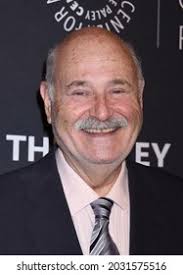The Multifaceted Career of Rob Reiner

Introduction
Rob Reiner, a prominent figure in the entertainment industry, is celebrated for his multifaceted contributions as both a director and an actor. With a career spanning over five decades, Reiner has become a household name thanks to his work in film and television. His blend of humor and serious storytelling has not only entertained audiences but also sparked discussions on critical social issues. As the entertainment landscape continues to evolve, understanding Reiner’s influence and legacy becomes increasingly relevant.
Key Contributions and Achievements
Rob Reiner was born on March 6, 1947, in New York City. He originally rose to fame as an actor, best known for his role as Michael ‘Meathead’ Stivic on the iconic television show “All in the Family.” However, his transition to directing propelled him into the spotlight, earning him accolades that include several nominations for Academy Awards and Golden Globes. Reiner’s directorial debut came with the 1984 film “This Is Spinal Tap,” a cult classic that helped pioneer the mockumentary genre.
Following this success, Reiner directed a series of critically acclaimed films, including “The Princess Bride” (1987), “Stand by Me” (1986), and “When Harry Met Sally…” (1989). Each of these films showcased his ability to blend humor with heartfelt narratives, capturing the essence of love, friendship, and the trials of growing up. His work often resonates with audiences of all ages, solidifying his status as a cinematic storyteller.
Recent Projects
In recent years, Reiner has continued to work actively in the industry. Notably, he directed the film “The Bucket List” (2007) starring Jack Nicholson and Morgan Freeman, which explores themes of mortality and the human experience. More recently, Reiner has been involved in various projects, both in film and television, including directing episodes for popular series.
His commitment to tackling pressing social issues has remained a defining characteristic of his career. As a vocal advocate for democracy, civil rights, and free speech, Reiner uses his platform to address contemporary challenges, embodying the idea that art can inspire change.
Conclusion
Rob Reiner’s contributions to the film industry are undeniably significant. As a respected director and actor, his body of work has left an indelible mark on Hollywood and popular culture. Looking ahead, Reiner’s influence is likely to continue shaping the narratives of future filmmakers and inspiring new generations of audiences. His ability to combine entertainment with meaningful storytelling serves as a reminder of the power that cinema holds in evoking empathy and driving conversations. For fans and aspiring filmmakers alike, following Reiner’s journey offers valuable insights into the art of storytelling.









